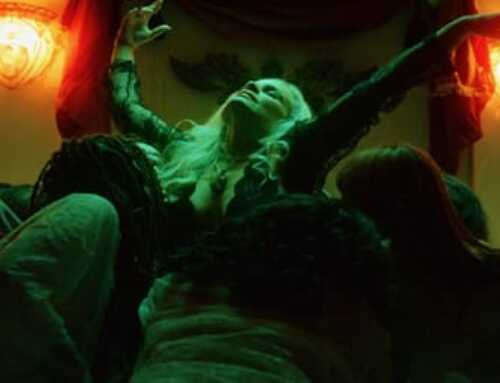So, I know what you’re thinking. Red Pill means The Matrix, right? Well, actually no. But in a sense, yes.
Ok, I’ll quit confusing you all because the symbolism of the ‘red pill‘ as used in The Matrix has much the same relevance here; do you choose to carry on through life in the midst of an imperfect but mostly acceptable illusion, or would you prefer to see it for how it really is; shadows chased away, ghastly truths glaringly revealed?
Through Red Pill, Tonya Pinkins addresses some of the harsher realities of our world; racial hatred and intolerance, ignorance, inequality; accepting there are many who are unaware of the true magnitude of these, but also unfortunately, many who are dangerously, actively aware.
Pinkins (starring here as main protagonist Cassandra) wrote, directed and produced this frighteningly relevant, independently funded film, which serves as a stark insight into the everyday struggles so many continue to face, in spite of our supposed enlightened modern-day way of thinking.
It’s a bold and unvarnished attempt to shed more light on a number of injustices so deeply rooted in history and culture they have become a ‘normal’ part of life for too many, and as such all too often continue unchallenged. The presentation of the message Pinkins strives to convey could not be simpler; the entire film serves as a metaphor in the strongest, clearest sense; without change and the willingness to accept it, what future lies in store for all humans?
The story, which offers strong parallels to Midsommar, Get Out, and Atwood’s A Handmaid’s Tale, follows a diverse group of 6 artistic and intellectual New York progressives as they make their way to a rental property in rural Virginia on the eve of the 2020 Presidential election to canvas for votes. The mood of the friends is largely jovial and optimistic, only Cassandra displaying unease which gradually deepens into almost tangible fear as red flags begin to become evident; warnings of approaching peril dismissed with rather condescending flippancy by the others until it’s too late.
Pinkins holds nothing back in her desire to show us the world through the eyes of a black woman in America throughout history and right into the present; is this a warning to us all about what the future may hold? Does a world in which we grow and change together so that we can all live as equal human beings await us? Or one where the horrors of not only the historic and all-too-recent past, but also certain ingrained attitudes continue to be handed over from one generation to the next, unchanging, unwavering, and perhaps, as the film leads us to wonder, blooming into something even more unspeakable?
Whatever your views on the subject matter of Red Pill, certain details about its very existence are worth noting; what drove Pinkins to self-fund and produce it herself (learning early on that many production companies were unwilling to take on such a film, given the subject matter and her own ethnicity and gender), the setting in Virginia (which became the slave breeding capital of the world following the abolition of the transatlantic slave trade), even the main character’s name Cassandra, taken from mythology, whose curse was to speak the truth and not be believed.
Such dedication to one’s cause does not come without passion, the impact of which I found powerful and impossible to ignore. Red Pill is no ordinary horror film in the conventional sense; the true horror comes from the truths within, and whether or not we choose to heed the underlying warning of what could be should we choose the blue pill instead.
8 out of 10
| Red Pill | ||
| RATING: | NR |
RED PILL TRAILER |
| Runtime: | 1 Hr. 27 Mins. | |
| Directed By: | ||
| Written By: | ||







